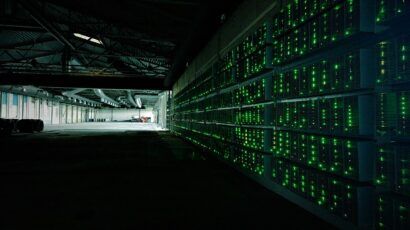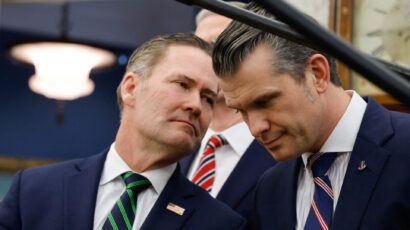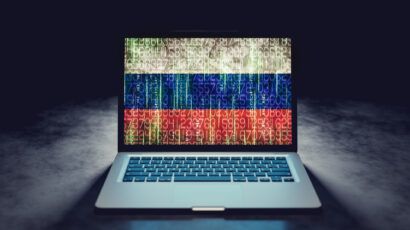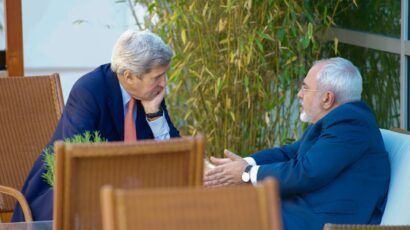Educated practitioners are the key
By Ibrahim Said Ibrahim |
At its most basic level, societal verification might be defined as a person-to-person means of gathering, sharing, and validating information. Societal verification techniques might be applied to fields including human rights, humanitarian assistance, peacebuilding, conflict prevention, and environmental protection. For the purposes of this Roundtable, arms control is paramount. But societal verification's ability to fulfill its potential in arms control will ultimately depend on the people who practice it. That is, sufficient numbers of people must emerge who both understand how handheld devices and social networks can contribute to arms control — and maintain an international outlook that entails a sense of global responsibility.
The revolution in information and communication technology that has occurred in recent years has made societal verification an increasingly practical idea. Social networks like Twitter and Facebook, as well as handheld devices like smartphones and tablet computers, have transformed societal verification of arms control treaties into something approaching reality. The hardware and software that people use in their daily lives represent a new technical means of verification; a time may be nearing when informal inspections can be carried out by anyone.
Though societal verification of arms control agreements is still in its earliest stages, social networks and handheld technologies have already proved their usefulness in humanitarian disasters and political transitions. In Japan, in the aftermath of the accident at the Fukushima Daiichi Nuclear Power Station, ordinary people produced crowdsourced maps that plotted radiation measurements. After Haiti's 2010 earthquake, crowdsourcing made an important contribution to emergency response. In my own country, Egypt, handheld devices and social networks played a well-known role in the January 25 revolution. In the revolution's aftermath, information that political players disseminate, sometimes deliberately to mislead, is being subjected to a sort of public verification. And information withheld by government-controlled media is sometimes reported through other means. For example, when radioactive material was stolen from Egypt's planned Al Dabaa nuclear power plant in early 2012, Facebook users reported the theft hours before government-controlled media did so.
In Syria, societal verification techniques have played a key role in establishing the belief in many quarters that the Assad regime has used chemical weapons against its own people. Though significant doubt remains about what weapons have been used and who has used them, it is at least interesting to note the role that societal verification is playing in a situation where reliable information is otherwise difficult to obtain. In a conflict zone such as Syria, gathering intelligence through conventional methods is challenging. The Organisation for the Prohibition of Chemical Weapons does not operate monitoring stations such as those maintained by the Preparatory Commission for the Comprehensive Nuclear Test Ban Treaty Organization (CTBTO). Proving the use of chemical weapons by testing samples of soil or water can be problematic because samples degrade over time. True, uploaded video streams and reports delivered via social networks can themselves be attempts at misinformation — but Syria at least provides an intriguing test case of societal verification's potential.
These examples from Haiti, Japan, Egypt, and Syria may point toward a future in which the treaty verification functions now performed by organizations like the CTBTO are increasingly carried out by ordinary people. The commission performs its verification duties through a network of stations that detect radionuclides and other signs of nuclear detonations. Stations like these are not cheap to construct and maintain, however, and some states may be reluctant to host facilities. To some extent, then, it may be possible to let ordinary people with handheld devices take over the work. Every iPhone, for example, when paired with a device such as the iRad Geiger, can function as a sophisticated radiation detector. A network of educated smartphone users equipped with such devices could form the basis of an auxiliary global monitoring system that could report global radiation readings for both arms control and environmental purposes. Such a system could perhaps be facilitated by a nongovernmental organization.
In my view, the main obstacle preventing such a thing from becoming reality is that only a limited number of people understand their own ability to collect information relevant to treaty verification. And it may be that too few people in the developing world maintain an international outlook that is consistent with contributions to nonproliferation, physical protection of fissile materials, efforts to stop trafficking, and the like.
But models exist for educating people in verification, its importance, and its techniques. For instance, a University of Oslo program with which I was formerly affiliated, with its roots in the UK-Norway Initiative on Nuclear Warhead Dismantlement Verification, strives to educate university students in verification issues associated with nuclear disarmament. In addition to providing training in the practical techniques of verification, the program introduces students to the political and humanitarian dimensions of nuclear nonproliferation and disarmament. It also emphasizes the risk that information about nuclear weapon design could inadvertently be gained during verification procedures and then transferred to a non-nuclear weapon state, which would be out of keeping with Article II of the Nuclear Non-Proliferation Treaty. This risk carries clear implications for the practice of societal verification. In any event, programs such as this might be adapted to encompass a broad range of issues associated with societal verification, and offered to interested individuals wherever political conditions permit.
But politics would restrict societal verification efforts quite seriously in some countries, just as it often restricts journalists. In environments of repressive government or political instability, journalists can be exposed to, among other things, accusations of breaching national security, and it is reasonable to believe that participants in verification efforts would face the same dangers. Syria, for example, which Reporters Without Borders places close to the bottom in its world ranking of press freedom, is a very problematic environment for societal verification practitioners. Here in Egypt, and in some other transitional states in the Arab world, the situation is not quite as severe. Journalists generally need not fear for their lives — but political activists must be concerned that their online activities are being tracked. Participants in societal verification would certainly be justified in harboring the same concerns.
Political barriers will to a large extent be overcome, however, as long as a sufficiently large cadre of educated individuals is motivated to participate in verification efforts. Societal verification is unlikely ever to completely supplant the work of organizations like the CTBTO. But it looks increasingly likely to become a useful complement.















